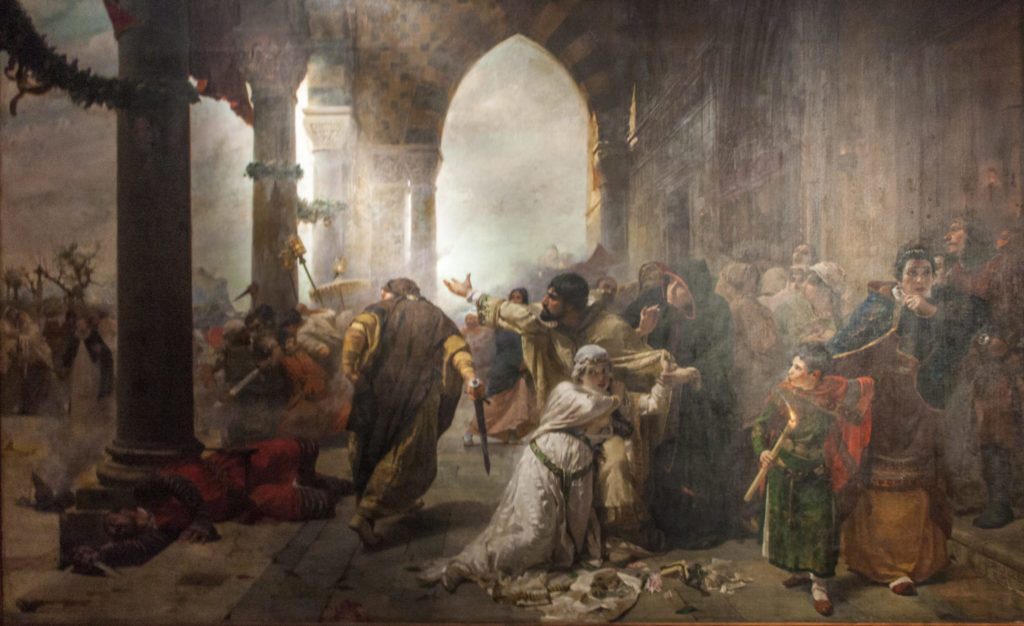
This is the name given to a massacre of French soldiers and
civilians on the Italian island of Sicily that took place in 1282. It was a
rebellion against the oppressive and tyrannical rule of Charles of Anjou, the
King of Italy and Sicily, who was very different from his brother, King Louis
IX of France, who would later be declared a saint.
On 30th March, which was Easter Monday, the
people of Palermo had gathered at Santo Spirito Church for the service of
Vespers. A pretty young woman received unwanted attentions from a French
soldier and her fiancé came to her defence. In the argument that followed the
man drew a knife and stabbed the French solder in the heart.
This was the trigger for a much larger outbreak of violence
as the Sicilians turned on the soldiers, more than 200 of whom were killed
before the day was over.
On the following day the rebellion spread across the island
and within the next six weeks more than 3,000 French people, civilians as well
as soldiers, were killed.
The uprising led to a much longer struggle for the control
of Sicily and the eventual overthrow of Charles of Anjou. The royal houses of
Naples and Aragon fought it out for twenty years, with the net result that
Sicily enjoyed virtual independence that lasted for almost a century.
The original dispute beyond a soldier and an enraged fiancé
was not forgotten, and the event is known to history as “The Sicilian Vespers”.
The Italian composer Giuseppe Verdi wrote a celebrated opera with that title in
1855.
No comments:
Post a Comment